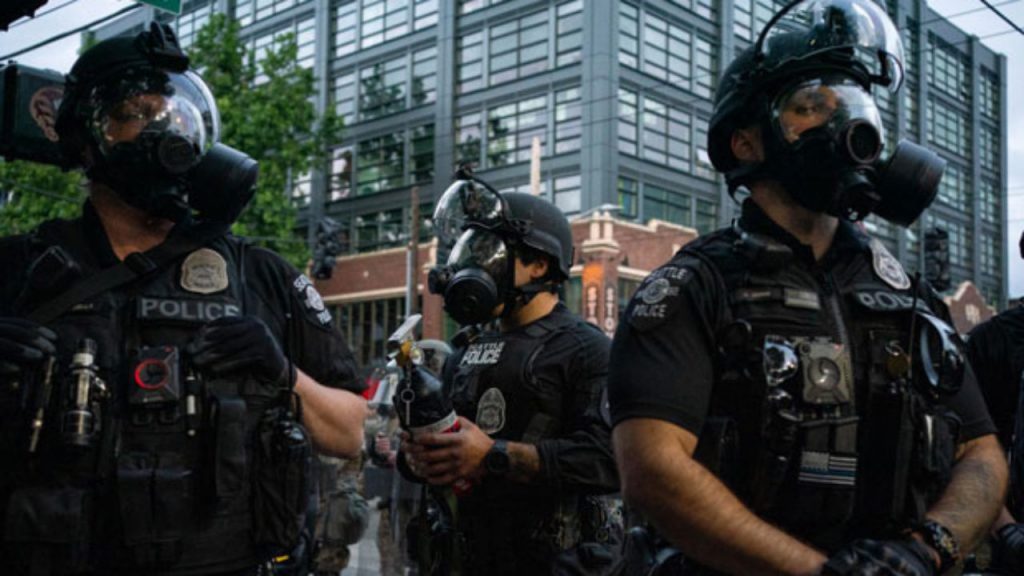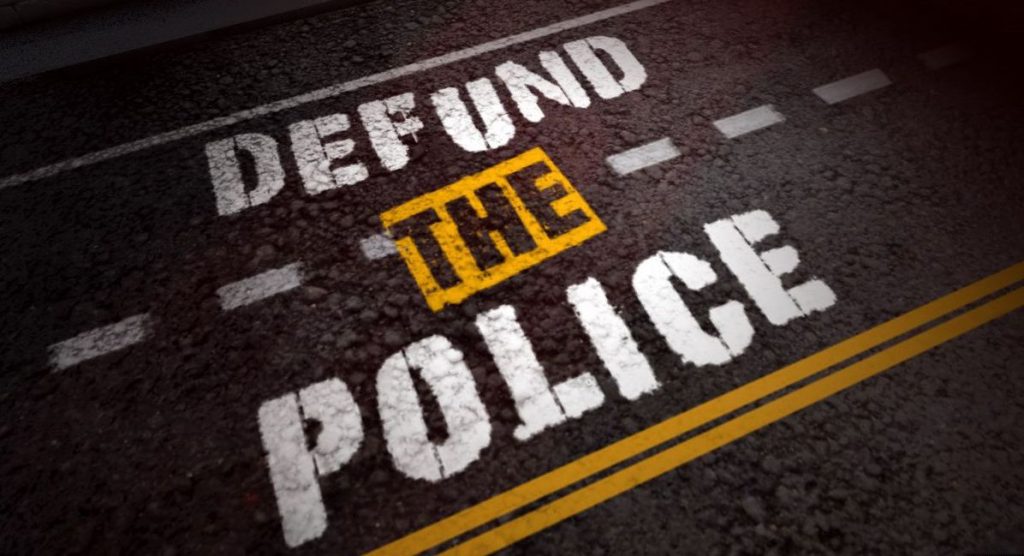
Defund The Police: What Does It REALLY Mean?
Why does everyone suddenly want to defund the police? Interestingly, the idea is not exactly what you might think.
Current Events
First things first, to defund the police does not mean to abolish the police. That would be idiotic. Defunding a police department is actually the scaling back of police budgets then reallocating those funds to other agencies.

“A lot of what we advocate for is investment in community services — education, medical access…,” said Lynda Garcia, policing campaign director at the Leadership Conference on Civil and Human Rights. “You can call it ‘defunding,’ but it’s just about directing or balancing the budget in a different way.”
For those who don’t understand, the concept is simple. Police department budgets get decreased and not eliminated. Cities take the additional funds and invest in community services, thereby reducing the need to call 911 during those incidents when a bonafide police officer isn’t necessarily required. So, if, for example, a mentally challenged person is causing a raucous on the street, a mental health professional would be called instead of the police.
“If someone is dealing with a mental health crisis, or someone has a substance abuse disorder, we are calling other entities that are better equipped to help these folks,” Garcia said.
Americans have become far too police reliant for events that don’t require a top law enforcement official. Most police officers have lost patience with being called on to respond to situations beyond the scope of their job.

“We’re asking cops to do too much in this country,” said Dallas Police Chief David Brown. “Every societal failure, we put it off on the cops to solve. Not enough mental health funding, let the cops handle it… Here in Dallas we got a loose dog problem; let’s have the cops chase loose dogs. Schools fail, let’s give it to the cops… That’s too much to ask. Policing was never meant to solve all those problems.”
Such was the case in Minneapolis when 4 police officers responded to a 911 call that was nothing more than a minor, nonviolent crime.
“George Floyd is the perfect case to look at,” Garcia said. “What he was accused of — what the police were called for — was a nonviolent offense: trying to use a fake $20 bill. If we reduce the number of crimes that exist or repeal ordinances which are really bloated with nonviolent offenses that were created during ‘Broken Windows,’ it will allow police to focus on violent crime — on the crimes where they are actually needed — instead of criminalizing the poor.”
.

In Minneapolis, the groups Reclaim the Block and the Black Visions Collective are lobbying for $45 million of the MPD’s $193 million 2020 budget. They have proposed those millions be “defunded” from the police budget and redirected into violence prevention programs, youth homelessness programs, an opioid task force, and mental health response team.
Activists in New York are requesting a defunding of the NYPD’s anticipated $6 billion budget in 2021, while Los Angeles groups are hoping to see a piece of the LAPD’s $1.8 billion budget be defunded and redirected to community organizations.
Here’s the true benefit behind defunding the police: When people are given the specific help they need earlier rather than later, they’re less likely to end up in a dangerous situation where police might be called to defuse a situation that could turn deadly, as it did for George Floyd.





First things first, to defund the police does not mean to abolish the police. That would be idiotic. Defunding a police department is actually the scaling back of police budgets then reallocating those funds to other agencies. [….]
DJ, Thank you. Thank you. Thank you for this. You actually summed it up right there!
But your entire post (breaking it all down in detail) is just the kind of clarification that’s needed for Americans to have a Clearer understanding of just what “defund the police” really means. Americans who genuinely want to know.
And it’s much appreciated!
This is the most concise explanation on defunding police I’ve seen yet.
On a related note…….
‘For Years, ‘Qualified Immunity’ Protected Violent Cops. Could a New Court Decision Mark a Shift?’
[On Tuesday, a federal court went against more than a decade of decisions in denying qualified immunity to a cop who shot a black man 22 times.
The unanimous decision by a three-judge panel concerns the case of Wayne Jones, who was shot and killed in West Virginia in 2013 by five cops, who fired at him while he lay motionless on the ground, reports BuzzFeed: Judge Henry Floyd of the 4th Circuit U.S. Court of Appeals wrote on behalf of the panel, citing the recent police killing of George Floyd.
From BuzzFeed:
Although we recognize that our police officers are often asked to make split-second decisions, we expect them to do so with respect for the dignity and worth of black lives. Before the ink dried on this opinion, the FBI opened an investigation into yet another death of a black man at the hands of police, this time George Floyd in Minneapolis,” wrote Floyd, who is not believed to be related to George Floyd. “This has to stop.
Judge Floyd wrote that granting the five officers qualified immunity, and thus dismissing the lawsuit against them, “would signal absolute immunity for fear-based use of deadly force, which we cannot accept.” ] – The Root, June 10, 2020
Re: the ‘Ending Qualified Immunity Act’
(Cont) ‘For Years, ‘Qualified Immunity’ Protected Violent Cops. Could a New Court Decision Mark a Shift?
[Congresswoman Ayanna Pressley (D-Mass.) introduced the Ending Qualified Immunity Act to the House of Representatives last Thursday, reports Boston.com. Co-written by Rep. Justin Amash, a Michigan rep who once ran as Republican (he now identifies as a Libertarian), the legislation has 16 Democratic co-sponsors, including Reps. Ilhan Omar (D-Minn.) and Alexandria Ocasio-Cortez (D-NY).
“Qualified immunity shields police from accountability, impedes true justice, and undermines the constitutional rights of every person in this country,” Pressley said in a statement.
The bill, which recently received an endorsement from more than 1,400 current and former athletes, coaches and executives from major professional sports leagues, would amend a portion of the Civil Rights Act of 1871 and “effectively cancel the precedents set by the Supreme Court,” writes Boston.com:
Specifically, the legislation would clarify the law to say it is not a sufficient defense for a government official to say they were acting in good faith or reasonably believed their conduct was lawful “at the time,” nor is it a defense that the rights violated were not “clearly established.” ] – The Root, June 10, 2020
Excellent job DJ. You mad everything totally clear. I have to admit I am one of the ones who did not understand what defund police meant. But now I have been enlightened.